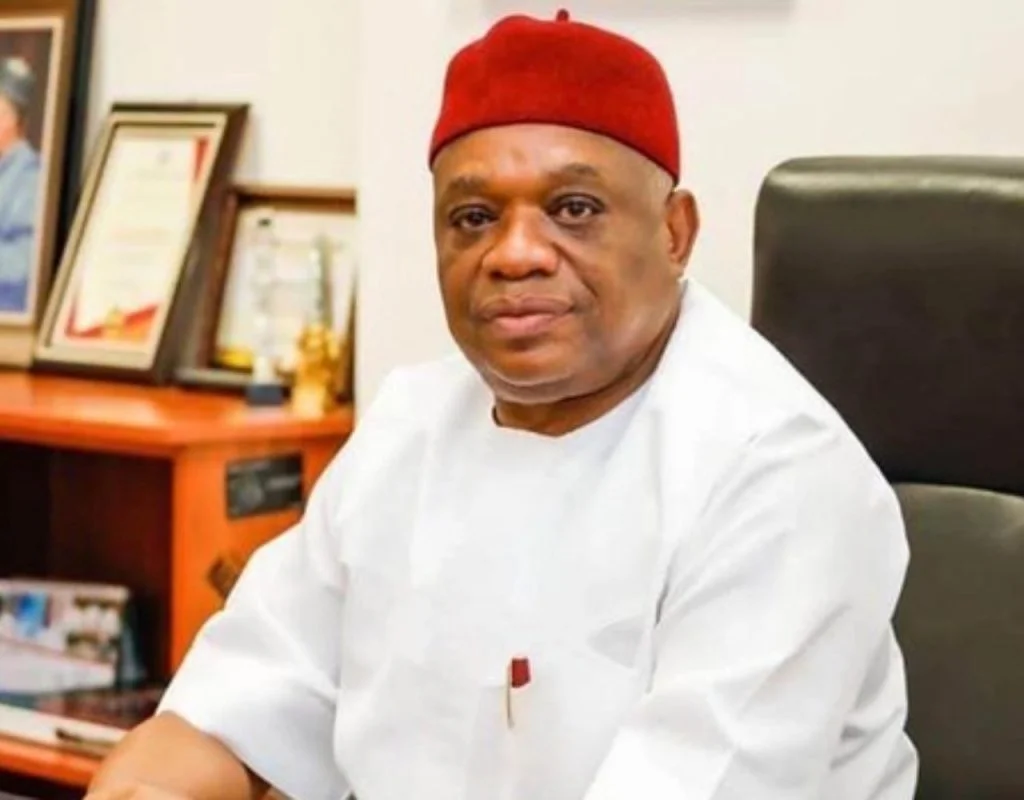Politics
Kalu pushes for 6-year single term for President, Govs to end political tension

Former Abia State Governor and Senator representing Abia North, Orji Uzor Kalu, has appealed to members of the National Assembly to consider amending the 1999 Constitution to establish a six-year single term for the President and state governors.
Kalu, who serves on the Senate Committee on Constitutional Review and Amendment, made the appeal in a video message shared on his Facebook page on Sunday, October 19, 2025.
He said adopting a single term would “reduce political tension, promote stability, and allow elected leaders to focus on governance rather than electioneering.
“In my private opinion as a person, I would like to appeal to my colleagues on this committee, chaired by the Deputy Senate President, Senator Jubril Barau, that our members in the Senate and the House of Representatives, chaired by Hon. Benjamin Kalu, should come together and agree to do the six-year single tenure,” Kalu stated.
“Because people are busy fighting after four years. They are fighting for another term. Let everybody who is coming know that he is just coming for a six-year single term, and there will be no rancour or problems. Let us devote most of our time to giving Nigerian people what they want.”
According to him, the proposed reform would help minimise corruption and enable officeholders to focus on improving citizens’ welfare.
“Everybody needs enjoyment. I want the Nigerian people to have the enjoyment of democracy,” he said.
“That single tenure can give them what they want, provide food on their table, provide adequate transport, provide access to movement for them, and security.”
Kalu also cautioned lawmakers against blindly copying Western systems, insisting that Nigeria must adopt a model that reflects its economic and developmental realities.
“A single term is the best tenure to go with, and that will give confidence in our democracy. We must not do what the American Constitution is saying. We must change some of those things in the American Constitution because we are in a developing country,” Kalu said.
He added that Nigeria’s presidential system, modeled after the U.S., has put unnecessary strain on the nation’s economy.
“Nigerians are suffering because we want to do what the presidential system of America is doing, and our economy cannot carry it. I see a lot of people in the executive arm in a hurry to acquire more wealth to be able to run for a second term. This (single term) will stop it,” he said.
The former governor proposed that the policy could take effect in either 2027 or 2031, depending on the consensus reached by lawmakers and stakeholders.
“We can start this from 2027 or 2031, I don’t care. Even those that are governors now can run for a six-year single tenure from 2027 or 2031. It doesn’t make any (different) meaning.
If we decide, we can amend the constitution to start from 2031, or we can amend it to start from 2027. It is for the good of Nigerians,” he said.
Kalu maintained that his proposal was motivated by a desire to strengthen Nigeria’s democracy, not for personal political gain.
“Nigerians should start appreciating for us to do what is for the benefit of our people. I don’t care the name anybody will call me. I will always speak and say the truth,” he stated.
“I said that in Africa, Nigerian journalists are the best, and I still stand by it. I said that in Africa, the Nigerian judiciary is the best, and I still stand by it. We have to stand up to speak the truth.”
The idea of a single tenure for the President and governors has surfaced repeatedly in Nigeria’s political debates. Supporters say it would cut election costs, reduce political tension, and discourage incumbents from manipulating the system for re-election.
A similar proposal was introduced in 2011 during the administration of former President Goodluck Jonathan, though it was eventually dropped after widespread criticism. Opponents argued that it might weaken the democratic process or entrench incumbents.
While critics fear it would deny citizens the right to re-elect effective leaders, advocates believe it could ensure accountability and compel leaders to deliver within a defined timeframe.























